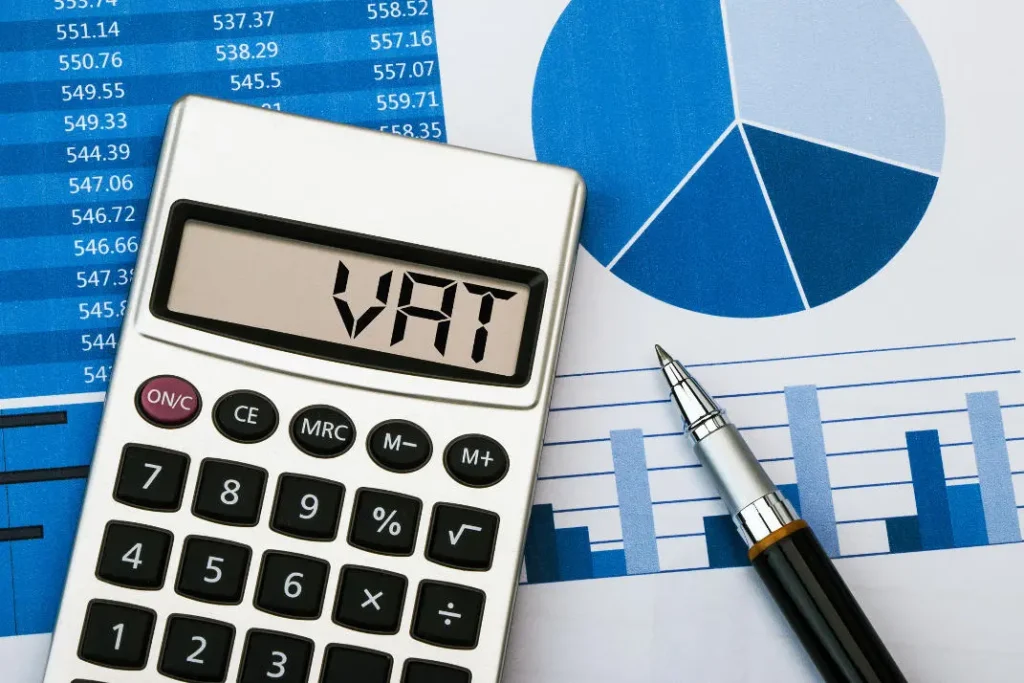TL;DR Understanding permanent establishment in Thailand is key for foreign businesses to avoid unexpected Thai taxes. Permanent Establishment arises when a company has a fixed place of business, employees, or significant operations in Thailand. Under the Revenue Code, Permanent Establishment status can trigger corporate income tax, branch profit tax, WHT, VAT, and compliance obligations. Correctly applying DTAs can reduce tax exposure through exemptions, time thresholds, and tax credits.
For foreign businesses in Thailand that conduct certain business activities, understanding how taxes in Thailand apply under the principle of Permanent Establishment is critical. Permanent establishment refers to a fixed place of business where the business activities of a foreign company are wholly or partly carried out in Thailand.
The definition for permanent establishment in Thailand is set out within the Revenue Code and double tax agreements (DTAs) signed with other countries. While the specific details as to what is considered Permanent Establishment may vary between each treaty, common examples include having a branch, office, factory, or dependent agents conducting business in Thailand.
If a business is considered to have a permanent establishment in Thailand, it may be subject to Thai corporate income tax. In this article, we will explore permanent establishment in Thailand and how it can affect businesses operating in Thailand.
Key Points
- Permanent Establishment in Thailand occurs when a foreign company has a fixed place of business or carries out operations through employees or representatives in the country.
- Double Taxation Agreements (DTAs) between Thailand and other countries can override domestic law and often provide more specific PE definitions, including time thresholds and exemptions for certain activities.
- PE status is determined by factors including physical presence, duration of activities, presence of employees/representatives, nature of business activities, and management control within Thailand.
- The tax implications of having a PE in Thailand include corporate income tax, 10% branch profit remittance tax, withholding tax obligations, VAT registration, and transfer pricing rules, all of which fall under Thai taxes that foreign companies must comply with.
- The Board of Investment (BOI) can help foreign companies mitigate PE concerns through special privileges like tax exemptions and reduced rates, while allowing 100% foreign ownership.
Defining Permanent Establishment in Thailand
In Thailand, Permanent Establishment (PE) refers to a fixed place of business through which a foreign company undertakes business activities either wholly or partially, within Thailand.
It’s important to note that the definition of Permanent Establishment in Thailand is broad and can be found in various sources. For example, Section 76 bis of the Revenue Code provides the main definition, while Section 66 outlines what is considered as carrying on business in Thailand.
However, when Thailand enters into a Double Tax Agreement (DTA) with another country, the treaty will include its own definition of Permanent Establishment. This definition may differ from Thailand’s domestic interpretation under its Revenue Code. In Thailand, DTAs generally take precedence over domestic law where there is a conflict.
Double Tax Agreements will usually provide more detailed requirements for what should be considered as Permanent Establishment and may also contain protections or exemptions for foreign companies.

Permanent Establishment Under the Revenue Code
The Revenue Code provides the basis for the definition of Permanent Establishment status in Thailand.
Section 76 bis
Section 76 bis defines permanent establishment for corporate tax purposes. Under Section 76 bis Permanent Establishment is considered to exist when a foreign company has an employee, representative, or intermediary in Thailand carrying on business and earns income or gains in Thailand
Section 66
Section 66 of the Revenue Code states that a foreign company is subject to taxes in Thailand if it “carries on business” within the country. Section 66 also establishes that foreign companies carrying on business in Thailand are liable for corporate income tax on their net profits earned from those activities.
A company will be considered “carrying on business” if it has a registered branch or its agent/employees conduct business in Thailand.
Double Taxation Agreements and Their Impact on Permanent Establishment
Double Taxation Agreements (DTAs) also play an important part when considering whether Permanent Establishment applies to a business.
DTAs are agreements signed between two countries to avoid double taxation of the same income. They also provide clarity on how Thai taxes interact with foreign tax systems. In cases where a DTA applies, it will take precedence over domestic law.
Key information about Permanent Establishment contained in DTAs may include:
Definition of Permanent Establishment (PE)
Double Tax Agreements (DTAs) often have a more specific, and sometimes narrower definition of what will be considered as Permanent Establishment (PE) compared to Thailand’s tax laws. This may lead to situations where a business might be considered as having Permanent Establishment under Thai law, but not under the terms of the applicable DTA.
Time Requirements for Permanent Establishment
Many DTAs contain timing requirements for establishing a Permanent Establishment. For example, construction, installation, or service projects typically need to last longer than a certain duration, often six or twelve months, to be considered a Permanent Establishment under the treaty.
Exempted Activities
DTAs may contain exemptions of business activities that will not create a Permanent Establishment. These exemptions would also apply to activities that are carried out through a fixed place of business. Examples may include preparatory or auxiliary functions such as storing or displaying goods, maintaining stock, or collecting information.
Permanent Establishment via Agency
DTAs may also contain detailed rules and requirements outlining what would be considered an agency relationship and if or when they would be considered as Permanent Establishment.
Service Permanent Establishment
Some DTAs have a definition of a “Service PE,” which is when a foreign company provides services in Thailand over a specified period. If a company provides services in Thailand for longer than a certain period of time, it might be considered to have a Permanent Establishment, even if it doesn’t have an office or physical presence there.
Profit Attribution Rules
DTAs usually explain how much profit a business with a Permanent Establishment in Thailand can be taxed on. These rules may be different from Thai domestic tax provisions and are designed to ensure that only the profits directly related to the activities of the Permanent Establishment in Thailand are subject to tax.
Withholding Tax Reductions
One major advantage of DTAs is that they may include clauses that lower or remove withholding taxes on income earned through a Permanent Establishment.
Non-Discrimination Clauses
DTAs often include non-discrimination clauses, which ensure that a Permanent Establishment is not treated any less fairly than a Thai company.
Mutual Agreement Procedures (MAP)
To resolve disputes that may be caused due to different interpretations of what is considered Permanent Establishment status. To try and remove this issue, DTAs may include a Mutual Agreement Procedure (MAP) which will allow the tax authorities of both countries to negotiate and settle disagreements.
Limitation of Benefits Clauses
Some newer DTAs include Limitation of Benefits (LOB) clauses. These are designed to stop misuse of the treaty and make sure only legitimate residents of the treaty countries can access its tax benefits.
Read more:
Double Tax Agreements in Thailand
Determining Permanent Establishment Status
To determine whether a foreign company has a Permanent Establishment (PE) in Thailand, several factors need to be considered from both Thai tax law and any relevant Double Tax Agreement (DTA) between Thailand and the company’s home country.
Under Thai law, Permanent Establishment (PE) may exist when a foreign business has a fixed place in Thailand, such as an office, factory, or workshop. This fixed place of business will be used to carry out its operations.
Other key considerations include how long the business operates in Thailand, whether it has employees or agents who can sign contracts or take orders, the type of activities being performed (especially if they are central to the business), and whether key management decisions are made within Thailand.
When a Double Tax Agreement (DTA) applies, additional rules may need to be considered. These can include minimum operation time requirements for construction or service projects, clearer rules for when an agent creates a PE, and a list of exempt activities, such as storing or displaying goods that do not trigger PE status under the treaty.
Tax Implications of Permanent Establishment in Thailand
Establishing a Permanent Establishment (PE) in Thailand brings a range of tax obligations. Understanding how taxes in Thailand apply in this context is essential for compliance. For example:
Thai Corporate Income Tax
Any profit that has been earned through the Permanent Establishment is subject to Thai corporate income tax. If those profits are sent back to the foreign head office, a 10% branch profit remittance tax may also apply.
Withholding Tax (WHT)
Payments made by Thai clients to the Permanent Establishment, such as for services or royalties, may be subject to withholding tax. However, any WHT owed can be reduced under applicable Double Tax Agreements (DTAs).
VAT
If the annual turnover of the entity exceeds 1.8 million THB, VAT registration will be required. This will require the entity applying VAT to sales and filing monthly VAT returns.
Payroll
The Permanent Establishment must also properly handle personal income tax for its employees in Thailand, including withholding tax from salaries. Such entities must also file annual corporate tax returns, including audited financial statements, and monthly and annual withholding tax reports.
Transfer Pricing
Transfer pricing rules apply to any transactions between the Permanent Establishment and its foreign head office or related entities. These must be conducted at arm’s length, and supporting documentation may be required.
If an applicable DTA can be applied, it may be possible to use tax credits earned from tax payments made in the other country to avoid double taxation.
Permanent Establishment for Individuals, Digital Nomads and Remote Worker
A Permanent Establishment (PE) in Thailand usually refers to a fixed place of business or carrying on business in Thailand.
For individuals, especially digital nomads and remote workers, Permanent Establishment risks depend on which visa is held by the individual and the type of work they perform.
Destination Thailand Visa (DTV)
Holders of the Destination Thailand Visa (DTV), allows stays of up to 180 days per entry over five years. However, holders are not permitted to work for Thai companies, have Thai clients or offer services in Thailand. DTV holders are also not eligible to obtain a Thai work permit.
Since the activities of DTV holders are limited to remote work and they cannot legally engage in local business, DTV holders usually do not create a Permanent Establishment. However, if their work in Thailand begins to be considered as a fixed business presence or they start concluding contracts on behalf of their company, the risk of Permanent Establishment may increase.
The Long Term Residency Visa (LTR)
Holders of the Long-Term Resident (LTR) visa are legally allowed to live and work in Thailand, including obtaining a work permit. The risk of Permanent Establishment increases if the holder of the DTV carries out substantial business activities for a foreign company from Thailand, especially if it involves a fixed place of work or making key decisions locally.
While the LTR visa offers tax benefits, such as a reduced personal income tax rate for highly skilled professionals and a personal income tax exemption on foreign-sourced income remitted to Thailand for Wealthy Global Citizens, Wealthy Pensioners, and Work-from-Thailand professionals, it also results in increased chances on Permanent Establishment arising. If a Permanent Establishment is created, the foreign employer may become subject to Thai corporate tax and reporting requirements.
Our Thoughts
As Thailand continues to attract foreign investors and remote professionals through new visa programs like the LTR and DTV, it’s essential for both individuals and foreign entities/employers to understand the potential tax and regulatory implications.
Many remote workers assume that simply working online from Thailand has no tax implications. However, this misconception often leads to unexpected exposure to Thai taxes for both individuals and their employers. However, the risk of creating a Permanent Establishment (PE) can quickly become an issue, especially when business activities may be considered a fixed operation or involve something as simple as a contract negotiation being conducted from within Thailand.
If you would like more information about whether you or your company may be at risk of Permanent Establishment, our team of experts is here to provide advice and assistance where needed.
Disclaimer
This information is provided for general informational purposes only and is not legal, tax, or financial advice.





